#Vacuum Excavation
Explore tagged Tumblr posts
Text
Experience Top-Grade Vacuum Excavation Services Only from Wannop Limited
Wannop Limited is proud to carry out a first-class excavation for a wide range of projects regardless of whether they are big or small. Our highly skilled team of Vac-Ex operators will make sure that your work is completed from start to finish as per the professional standard. Vacuum excavation provides a safe and low risk method which significantly reduces the risk of accidents. With our high suction powered trucks, we’re able to expertly excavate the ground ensuring there is no damage or personal injury. One of the other benefits of vacuum excavation is that it reduces noise and disruption to the surrounding area. Also, it limits the vibrations that can cause damage on or around the site. The Vacuum Excavator method reduces the overall cost as it helps reduce the manpower and machinery by half. Get in touch with us now for more information on hire availability and all our services!
0 notes
Text
Vacuum Excavation
Experience precision and efficiency with vacuum excavation services by Summerland Environmental. Our advanced technology allows for non-destructive digging, minimizing disruption to surrounding areas while excavating with precision.
0 notes
Text
Comprehensive Guide to Septic Tank Cleaning, Waste Oil Recycling, and Used Oil Recycling
Septic tank cleaning, waste oil recycling, and used oil recycling are crucial processes for maintaining environmental health, preventing contamination, and ensuring the longevity of infrastructure. This article delves into the importance of these services, the processes involved, and the benefits they bring to individuals and communities. Visit Clarence Valley Septics for more information and professional services.
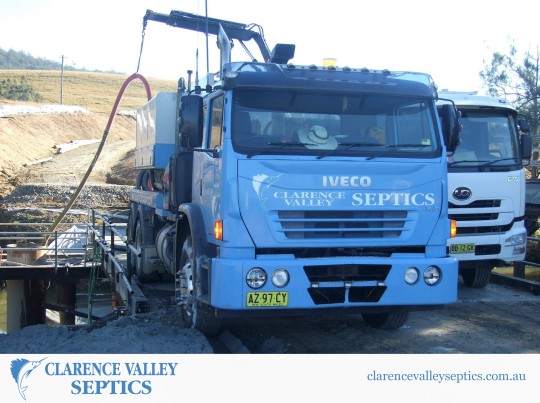
Septic Tank Cleaning
Understanding Septic Systems
Septic systems are essential for managing household wastewater in areas without centralized sewage systems. A typical septic system comprises a septic tank and a drain field. Wastewater from the home flows into the septic tank, where solids settle at the bottom, forming sludge, and fats, oils, and grease float to the top as scum. The remaining liquid effluent flows out into the drain field for further filtration and absorption into the soil.
Importance of Regular Septic Tank Cleaning
Regular septic tank cleaning is vital to prevent system failure, environmental contamination, and health hazards. Over time, sludge and scum accumulate in the tank, reducing its capacity and efficiency. If not cleaned periodically, the tank can overflow, leading to sewage backups in the home, unpleasant odors, and costly repairs.
The Cleaning Process
Inspection: A thorough inspection of the septic system is conducted to assess its condition and determine the cleaning requirements.
Pumping: A vacuum truck is used to pump out the accumulated sludge and scum from the tank.
Cleaning: The tank is cleaned, removing any remaining residue and ensuring all components are functioning correctly.
Disposal: The pumped waste is transported to a designated treatment facility for proper disposal and treatment.
Benefits of Septic Tank Cleaning
Prevents System Failure: Regular cleaning helps avoid costly repairs and replacements by maintaining the system's efficiency.
Protects Health: Properly maintained septic systems prevent sewage backups, reducing the risk of exposure to harmful pathogens.
Environmental Protection: Prevents untreated sewage from contaminating groundwater and local waterways.
Increases Longevity: Regular maintenance extends the lifespan of the septic system, providing long-term savings.
Waste Oil Recycling
Understanding Waste Oil
Waste oil refers to any petroleum-based or synthetic oil that has become unsuitable for its original purpose due to contamination with impurities, such as dirt, metal particles, or chemicals. Common sources of waste oil include automotive engines, industrial machinery, and cooking processes.
Importance of Waste Oil Recycling
Recycling waste oil is crucial for environmental protection and resource conservation. Improper disposal of waste oil can lead to soil and water contamination, posing serious health risks to humans and wildlife. Recycling helps mitigate these risks and reduces the demand for new oil production, conserving natural resources.
The Recycling Process
Collection: Waste oil is collected from various sources, such as automotive repair shops, factories, and restaurants.
Transport: The collected waste oil is transported to a recycling facility in specially designed containers.
Testing: The waste oil undergoes testing to determine its composition and suitability for recycling.
Recycling: The recycling process involves removing contaminants through filtration, distillation, and other treatment methods.
Re-refining: The purified oil is re-refined into usable products, such as lubricants, fuel oil, and raw materials for new oil products.
Benefits of Waste Oil Recycling
Environmental Protection: Prevents soil and water contamination by diverting waste oil from landfills and illegal dumping.
Resource Conservation: Reduces the demand for new oil production, conserving natural resources and reducing greenhouse gas emissions.
Economic Savings: Recycling waste oil is cost-effective compared to producing new oil, offering financial savings for industries and consumers.
Energy Efficiency: Re-refining waste oil uses less energy than producing oil from crude, promoting energy efficiency.
Used Oil Recycling
Understanding Used Oil
Used oil is any oil that has been used and subsequently contaminated with impurities, making it unsuitable for further use in its original application. This includes motor oil, hydraulic oil, and transmission fluid.
Importance of Used Oil Recycling
Recycling used oil is essential for protecting the environment and conserving valuable resources. Improper disposal of used oil can lead to severe environmental damage, including soil and water pollution. Recycling helps mitigate these risks and promotes sustainable practices.
The Recycling Process
Collection: Used oil is collected from various sources, including automotive service centers, industrial facilities, and households.
Transport: The collected used oil is transported to a recycling facility in appropriate containers.
Testing: The used oil undergoes testing to determine its suitability for recycling and to identify contaminants.
Recycling: The recycling process involves removing contaminants through filtration, distillation, and other treatment methods.
Re-refining: The purified oil is re-refined into usable products, such as lubricants, fuel oil, and raw materials for new oil products.
Benefits of Used Oil Recycling
Environmental Protection: Prevents soil and water contamination by diverting used oil from landfills and illegal dumping.
Resource Conservation: Reduces the demand for new oil production, conserving natural resources and reducing greenhouse gas emissions.
Economic Savings: Recycling used oil is cost-effective compared to producing new oil, offering financial savings for industries and consumers.
Energy Efficiency: Re-refining used oil uses less energy than producing oil from crude, promoting energy efficiency.
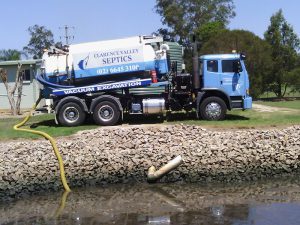
Conclusion
Septic tank cleaning, waste oil recycling, and used oil recycling are essential services for maintaining environmental health, preventing contamination, and conserving resources. Regular septic tank cleaning ensures the efficient operation and longevity of septic systems, protecting public health and the environment. Waste oil and used oil recycling prevent pollution, conserve resources, and promote sustainable practices.
By understanding the importance and benefits of these processes, individuals and industries can contribute to a cleaner, healthier, and more sustainable future. For professional services and expert guidance, visit Clarence Valley Septics.
Call to Action Ensure your septic system and oil waste are properly managed by contacting Clarence Valley Septics for reliable and professional services. Protect your property, health, and the environment by prioritizing regular maintenance and recycling efforts. Visit Clarence Valley Septics to learn more and schedule your service today
#septic tank cleaning#waste oil recycling#used oil recycling#vacuum excavation#vacuum excavation australia#waste management chemical disposal#grease trap cleaning
0 notes
Text
Precision and Professionalism: Introducing Precise Contractors' Hydro-Excavation Services
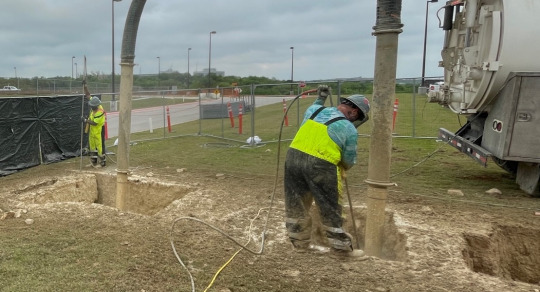
In the realm of construction and excavation, precision and professionalism are paramount. When it comes to delicate or complex projects that demand the utmost care, expertise, and efficiency, one name stands out: Precise Contractors. With a commitment to excellence and a track record of delivering top-tier services, Precise Contractors offers a range of hydro-excavation services that redefine industry standards.
Why Hydro-Excavation?
Hydro-excavation, often referred to as hydrovac or vacuum excavation, is a cutting-edge method that utilizes pressurized water and a powerful vacuum system to precisely excavate soil and debris. Unlike traditional excavation methods that rely on heavy machinery and manual labor, hydro-excavation offers a safer, more efficient, and environmentally friendly alternative.
The Precision Advantage
At Precise Contractors, precision is more than just a buzzword – it's a guiding principle that informs every aspect of their hydro-excavation services. Equipped with state-of-the-art technology and staffed by highly skilled technicians, Precise Contractors ensures that each excavation project is executed with pinpoint accuracy and meticulous attention to detail.
Professionalism in Practice
Professionalism is at the core of everything Precise Contractors does. From the initial consultation to project completion, clients can expect transparent communication, adherence to deadlines, and a steadfast commitment to quality. With a focus on customer satisfaction and safety, Precise Contractors maintains the highest standards of professionalism at every stage of the excavation process.
Comprehensive Services
Whether it's daylighting utilities, trenching, potholing, or debris removal, Precise Contractors offers a comprehensive suite of hydro-excavation services tailored to meet the unique needs of each project. With the versatility to handle projects of any scale or complexity, Precise Contractors is the go-to choice for contractors, developers, municipalities, and industrial clients alike.
Environmental Responsibility
In an era of increasing environmental awareness, sustainability is non-negotiable. Recognizing the importance of minimizing environmental impact, Precise Contractors prioritizes eco-friendly practices in all aspects of their operations. By utilizing hydro-excavation techniques that minimize soil disturbance and reduce the risk of utility damage, Precise Contractors demonstrates a steadfast commitment to environmental responsibility.
The Promise of Excellence
At Precise Contractors, excellence isn't just a goal ��� it's a promise. With a relentless dedication to innovation, integrity, and customer satisfaction, Precise Contractors continues to set the standard for hydro-excavation services. Whether it's unlocking new possibilities in excavation technology or exceeding client expectations, Precise Contractors is driven by a singular vision: to deliver precision and professionalism with every project, every time.
In the dynamic world of construction and excavation, Precise Contractors stands as a beacon of reliability, expertise, and excellence. With their unrivaled commitment to precision and professionalism, Precise Contractors is not just shaping the landscape – they're redefining what it means to excel in hydro-excavation services.
#hydro excavation services near me#hydro excavation near me#Line Location#vacuum excavation contractors near me#Vacuum Excavation#trenching services#trenching contractor near me
0 notes
Text
Exploring the Versatile Applications of Vacuum Loading
Vacuum loading has emerged as a key service in the industrial and environmental fields, providing effective solutions for various cleaning and waste management needs.
Read on to understand the various applications of vacuum loading services, highlighting their versatility and efficiency.
Introduction to Vacuum Loading
Vacuum loading is a process involving high-powered vacuum units that effectively remove, transport, and dispose of materials, ranging from liquids and sludges to dry solids and powders. This method is renowned for its efficiency, safety, and ability to handle a variety of waste types, making it a preferred choice in numerous industries.
Applications of Vacuum Loading Services
1. Industrial Cleaning: One of the primary uses of vacuum loading is in industrial cleaning. Factories, warehouses, and manufacturing plants often require the removal of industrial waste, which can include hazardous materials. Vacuum loading services can safely and efficiently clean tanks, pits, and process areas, ensuring compliance with environmental and safety regulations.
2. Waste Management: Vacuum loading plays a crucial role in waste management. It's used to clean and empty septic tanks, grease traps, and wastewater treatment facilities. This service is essential for maintaining hygiene standards and preventing environmental contamination.
3. Mining and Resource Extraction: In the mining industry, vacuum loading is used to manage and clean spillages and tailings. It's effective in removing sludge and other waste materials from mining sites, aiding in maintaining operational efficiency and environmental safety.
4. Construction Sites: Construction and demolition sites generate a significant amount of waste, including dust, debris, and other particulates. Vacuum loading services are employed to clean these sites, ensuring that they are safe for workers and minimising the impact on the surrounding environment.
5. Emergency Response and Spill Recovery: Vacuum loading services are crucial in emergency spill response scenarios. They are employed to quickly and effectively clean oil spills, chemical leaks, and other hazardous material incidents, minimising environmental damage and public health risks.
6. Municipal Applications: Local governments use vacuum loading for various municipal services, including cleaning stormwater drains, sewers, and catch basins. This helps in preventing blockages and flooding, especially during heavy rainfall seasons.
7. Agricultural Sector: In agriculture, vacuum loading is used for cleaning animal waste and other organic waste materials. This not only aids in maintaining farm hygiene but also helps in managing waste in an environmentally sustainable manner.
8. Marine and Shipping Industry: In the marine industry, vacuum loading is used for cleaning ships, oil tanks, and bilges. It's also employed in ports and harbors for maintaining cleanliness and for environmental spill responses.
Conclusion
Vacuum loading services offer a versatile and efficient solution for a wide range of applications across various industries. From industrial cleaning to emergency spill response, these services play a critical role in maintaining environmental hygiene and safety.
The adaptability and effectiveness of vacuum loading make it an indispensable service in today's industrial and environmental landscape. As industries continue to evolve and focus more on sustainability and safety, the demand for professional and reliable vacuum loading services is expected to grow, reinforcing its significance in modern industrial practices.
0 notes
Text
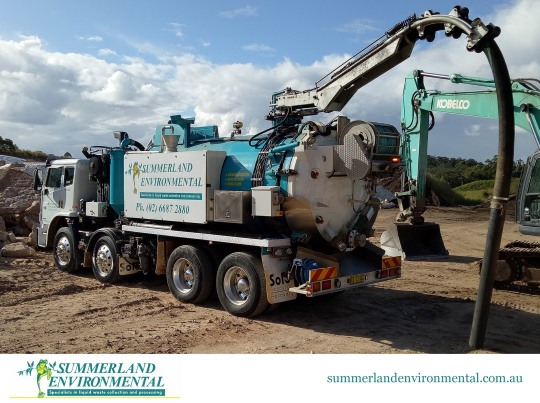
Vacuum Excavation Services | Summerland Environmental
Summerland Environmental offers vacuum excavation services, which are a safe and efficient way to excavate soil and debris around sensitive underground utilities, such as gas lines, water mains, and fiber optic cables. The vacuum excavation process involves using high-pressure air or water to break up soil and debris, which is then removed with a powerful vacuum system.
0 notes
Text
Reliable Vacuum Excavation Services
Our hydro excavation companies prioritize safety and precision to meet the unique requirements of each excavation project. Contact us now!
#vac truck#hydro excavation companies#hydro excavation#hydro excavation services#hydro vac companies#hydro vac services#hydro vac truck service#hydrovac contractors#hydrovac truck services#hydrovac#vac truck service#vacuum truck daylighting excavation#hydro vac#hydrovac truck#utility excavation
0 notes
Text
Vacuum Excavator vs. Traditional Digging Methods: Which is Better?
Breaking ground for a new project? Unearthing buried utilities can be a nerve-wracking task. Traditional methods like backhoes can be fast, but they risk damaging hidden pipes and cables, leading to costly delays and repairs. Vacuum excavator: a safer, more precise alternative.

Traditional Digging: The Classic, But Risky, Choice
For generations, excavators and shovels have been the go-to tools for digging. They're familiar, powerful, and get the job done. However, unlike a Merlo telehandler, their lack of finesse can be a big drawback. One wrong scoop and you could be looking at a service outage and a potential safety hazard.
The Rise of the Vacuum Excavator
Vacuum excavation, also known as hydro vac excavation, is a sophisticated approach that uses pressurized air or water to loosen soil, which is then sucked up by a powerful vacuum. This method offers several advantages:
Precision: The pinpoint accuracy of vacuum excavation minimizes the risk of hitting underground utilities.
Safety: Since it's a non-destructive method, the risk of accidental damage is significantly reduced, keeping workers and infrastructure safe.
Cleanliness: The vacuum system effectively captures dust and debris, resulting in a cleaner worksite.
Efficiency: Vacuum excavation can often expose underground utilities faster than traditional methods, saving time and money.
Which Method is Right for You?
While traditional digging might be suitable for large-scale excavations in open areas, vacuum excavation shines in precise applications near existing infrastructure. Here's a quick guide:
Choose traditional digging for: Large-scale, open excavation projects where there's a low risk of hitting utilities.
Choose vacuum excavation for: Locating and exposing underground utilities, potholing, working in congested areas, or projects requiring minimal environmental impact.
Vacuum excavation is rapidly becoming the preferred method for many excavation projects. Its precision, safety, and efficiency make it a smarter choice for both contractors and property owners. So next time you need to break ground, consider the power of a vacuum – it might just save you a big headache (and a hefty repair bill).
Source
0 notes
Text
Why Choose Vacuum Excavator Hire in the West Midlands for Your Project
The West Midlands, a bustling hub of construction, infrastructure development, and utility projects, demands efficient and reliable excavation solutions. Traditional excavation methods, relying on heavy machinery and manual labor, can be time-consuming, disruptive, and pose risks to underground infrastructure. Vacuum excavation, with its advanced technology and non-destructive approach, is revolutionizing the way we dig, offering numerous benefits for a wide range of projects in the region. This comprehensive guide explores the compelling reasons why vacuum excavator hire in West Midlands should be considered for your next project, highlighting its advantages in terms of efficiency, safety, and cost-effectiveness.

1. Enhanced Safety: Protecting Underground Infrastructure and Workers
Vacuum excavation utilizes a combination of high-pressure water jets and powerful vacuum systems to loosen and remove soil, minimizing the risk of damaging underground utilities. This is crucial for projects involving:
Utility Line Locating and Repair: Precisely excavating around gas lines, water pipes, electrical cables, and other utilities for repair or maintenance without causing damage.
Foundation Excavation: Creating safe and accurate excavations for foundations and other structures without risking disruption to nearby services.
Pothole Repair: Efficiently removing asphalt and debris from potholes without damaging surrounding infrastructure.
Pipeline Installation: Creating trenches for pipeline installation without jeopardizing existing utilities.
Telecommunications Infrastructure: Safely excavating around telecommunications cables and fiber optic lines for installation and maintenance.
Beyond protecting underground infrastructure, vacuum excavation also enhances worker safety by:
Reducing Manual Labor: Minimizing the need for manual digging, reducing the risk of injuries from heavy lifting and strenuous tasks.
Improved Visibility: The excavation process creates a clear view of the work area, allowing for better visibility and awareness of potential hazards.
Reduced Noise and Vibration: Vacuum excavators operate with less noise and vibration compared to traditional excavation methods, creating a safer and more comfortable work environment.
2. Increased Efficiency: Delivering Faster Project Completion and Reduced Downtime
Vacuum excavators offer significant efficiency gains compared to traditional excavation methods, leading to faster project completion and reduced downtime:
Precise Excavation: The combination of water jetting and vacuuming allows for precise excavation, minimizing the need for over-excavation and subsequent backfilling.
Faster Excavation Rates: Vacuum excavators can excavate soil and debris at a much faster rate than traditional methods, significantly reducing project timelines.
Minimal Site Disruption: The non-destructive nature of vacuum excavation minimizes disruption to surrounding areas, reducing the need for traffic control and site closures.
Reduced Labor Costs: The efficiency of vacuum excavators reduces the amount of labor required for excavation, leading to lower labor costs.
3. Cost-Effectiveness: Balancing Initial Investment with Long-Term Savings
While the initial cost of renting a vacuum excavator may seem higher than traditional excavation methods, the long-term benefits often outweigh the initial investment:
Reduced Damage Costs: Minimizing the risk of damaging underground utilities significantly reduces the cost of repairs and potential service disruptions.
Faster Project Completion: Faster project completion translates to reduced labor costs, material costs, and overhead expenses.
Environmental Benefits: The reduced environmental impact of vacuum excavation can lead to lower environmental remediation costs and regulatory compliance expenses.
Increased Productivity: The efficiency of vacuum excavators allows crews to complete more projects in a shorter timeframe, increasing overall productivity and profitability.
4. Versatility and Adaptability: Suitable for a Wide Range of Projects
Vacuum excavators are highly versatile and adaptable, making them suitable for a wide range of projects in the West Midlands:
Construction: Excavating for foundations, trenches, and utility lines in residential, commercial, and industrial construction projects.
Utilities: Locating, repairing, and installing utility lines for gas, water, electricity, and telecommunications services.
Transportation: Repairing potholes, excavating for road construction, and maintaining highway infrastructure.
Environmental Remediation: Excavating contaminated soil and debris for cleanup and disposal.
Landscaping: Creating trenches for irrigation systems, excavating for ponds and water features, and preparing areas for landscaping projects.
5. Environmental Considerations: Minimizing Soil Disturbance and Pollution
Vacuum excavators offer a more environmentally friendly approach to excavation compared to traditional methods:
Reduced Soil Disturbance: The non-destructive nature of vacuum excavation minimizes soil disturbance, reducing erosion and sedimentation.
Minimized Waste Generation: The process generates less waste than traditional excavation, reducing the need for landfill disposal.
Reduced Water Consumption: Modern vacuum excavators use water-efficient systems, minimizing water consumption and reducing the risk of groundwater contamination.
Reduced Noise and Air Pollution: Vacuum excavators operate with less noise and air pollution than traditional excavation methods, contributing to a cleaner and healthier environment.
6. Minimizing Traffic Disruptions: Efficient Operations in Busy Areas
Vacuum excavators excel in minimizing traffic disruptions, making them ideal for projects in busy urban areas of the West Midlands:
Compact Equipment: Vacuum excavators are typically smaller and more maneuverable than traditional excavation equipment, allowing for easier access to tight spaces and minimizing traffic congestion.
Quick Excavation: The efficient excavation process reduces the time required for work, minimizing traffic delays.
Minimized Noise and Dust: The quieter and cleaner operation of vacuum excavators reduces noise and dust pollution, creating a more pleasant environment for nearby residents and businesses.
Conclusion:
Vacuum excavator hire in the West Midlands offers a compelling solution for construction and utility projects, providing significant advantages in terms of safety, efficiency, cost-effectiveness, versatility, environmental considerations, and minimized traffic disruptions. By embracing this technology, contractors, utility companies, and other stakeholders can enhance project outcomes, minimize risks, and contribute to a more sustainable future in the region. As the demand for safe, efficient, and environmentally responsible excavation practices continues to grow, vacuum excavators are poised to play an increasingly important role in shaping the future of construction and utility work in the West Midlands.
0 notes
Text
Vacuum Excavation Services in the UK | Wannop Limited
Discover top-tier Vacuum Excavation Services in the UK with Wannop Limited. Our expert Vac-Ex operators ensure professional excavation for projects of any size, prioritizing safety and precision. Utilizing high-suction powered trucks, we minimize the risk of damage and personal injury. Additionally, our method reduces noise and disruption, safeguarding the surrounding area from potential damage. Trust Wannop Limited for efficient and safe excavation solutions.
0 notes
Text
Vacuum Excavation
Vacuum Excavation, offered by Summerland Environmental, is a non-destructive digging method that safely exposes underground utilities and removes soil with high-pressure air or water and a powerful vacuum system. This technique minimizes damage to existing infrastructure, reduces environmental impact, and ensures precise excavation. Ideal for industrial sites, it offers a safer and more efficient alternative to traditional digging methods. Trust Summerland Environmental for expert Vacuum Excavation services that prioritize safety and efficiency.
0 notes
Text
Vacuum Excavation Services
Clarence Valley offers top-notch Vacuum Excavation Services, utilizing advanced and sustainable methods for precise and safe digging. Ideal for underground utilities, our services minimize damage and disruption. Trust our experienced team for efficient and environmentally-friendly excavation. Visit Clarence Valley for professional vacuum excavation services that ensure accuracy and protect your infrastructure.
#Vacuum Excavation Services#clarencevalley spetic#liquid waste management#liquid waste disposal#chemical waste disposal
0 notes
Text
Vacuum Excavation Services - Precise Contractors
What is vacuum excavation used for?
Vacuum excavation, also known as hydro excavation or soft digging, is a non-destructive digging method that uses high-pressure water or air to break up soil, and a vacuum system to remove the debris. This technique is commonly used for various purposes in construction, utility maintenance, and other industries. Some of the key applications of vacuum excavation include:

Utility Locating and Exposure:
Safe Excavation around Utilities: Vacuum excavation is often used to safely expose and locate underground utilities such as water pipes, gas lines, electrical cables, and telecommunications cables. This helps prevent damage to these critical infrastructure elements during construction or excavation projects.
Potholing:
Utility Potholing: Contractors use vacuum excavation to create small, precise holes (potholes) to visually inspect and verify the location of buried utilities before conducting any major excavation work. This reduces the risk of accidental damage to underground infrastructure.
Trenching:
Trenching for Utilities: Vacuum excavation is employed for creating trenches needed for installing utilities. The non-destructive nature of the process reduces the likelihood of damaging existing utilities in the vicinity.
Debris Cleanup:
Spill Cleanup: Vacuum excavation is useful for cleaning up spills or removing loose materials in industrial settings. The vacuum system efficiently collects and transports debris without disturbing the surrounding environment.
Environmental Sampling:
Soil Sampling: Vacuum excavation can be used for collecting soil samples in an environmentally sensitive manner, without causing contamination or disturbance to the surrounding area.
Slot Trenching:
Narrow Trenching: In situations where a narrow trench is required, such as for installing small pipes or cables, vacuum excavation provides a precise method for creating these narrow slots without causing unnecessary disruption.
Cold Weather Excavation:
Frozen Ground Excavation: Vacuum excavation is particularly useful in cold climates where the ground may be frozen. The high-pressure water or air can break up the frozen soil, and the vacuum system can remove the material.
Archaeological Excavation:
Sensitive Excavation: In archaeological applications, vacuum excavation is used for delicate and precise excavation around artifacts to avoid damage.
Overall, vacuum excavation is chosen for its precision, safety, and environmental benefits compared to traditional mechanical digging methods. It minimizes the risks associated with damaging underground infrastructure and reduces the environmental impact of excavation projects.
#trenching services#hydro excavation services near me#hydro vac service near me#hydrovac contractors#trenching contractor near me#hydrovac solutions#vacuum excavation contractors near me#hydrovac excavation companies near me#hydro contractors#hydro excavation near me
2 notes
·
View notes
Text
Beyond Traditional Digging: The Rise of Vacuum Excavation
In modern construction and site development, techniques that ensure safety, precision, and efficiency are highly sought after. Introducing vacuum excavation: a cutting-edge method transforming our approach to excavation projects.
Moving beyond the conventional digging methods, this technique harnesses the power of air or water combined with a powerful vacuum. But why is it becoming the go-to choice for many professionals? Let's delve deeper.
The Concept of Vacuum Excavation
At its core, vacuum excavation, also known as hydro or air excavation, uses high-pressure air or water to break up the soil. Simultaneously, a vacuum system removes the debris into a holding tank, ensuring a clean and clear excavation area. This technique offers a less invasive approach compared to traditional mechanical digging methods.
Advantages Over Traditional Methods
1. Safety First: One of the paramount benefits of vacuum excavation is the enhancement of onsite safety. By reducing the chances of damaging underground utilities like gas lines, water pipes, or electrical conduits, this method drastically lowers the risks associated with accidental strikes, which can lead to accidents, expensive repairs, or even litigation.
2. Precision in Practice: The accuracy of vacuum excavation is exceptional. It provides a neat and controlled dig, ensuring minimal disruption to the surrounding area. This precision proves crucial, especially in crowded urban settings where space is at a premium and mistakes can have cascading consequences.
3. Eco-Friendly: Traditional excavation methods can disrupt the natural habitat, affecting the local flora and fauna. Vacuum excavation minimises this ecological impact by limiting the excavation to a specific, targeted area, making it a more environmentally friendly option.
4. Cost-Efficient: While the initial investment for vacuum excavation services might seem high, the long-term savings are notable. Reduced repair costs, lesser downtime due to utility damages, and faster project completion times contribute to cost-efficiency.
Where is Vacuum Excavation Used?
The versatility of vacuum excavation is another reason behind its rising popularity. Some common applications include:
• Locating and exposing underground utilities;
• Slot trenching;
• Potholing or daylighting to verify the presence of utilities;
• Excavations in congested areas with limited access;
• Environmental cleanup and remediation projects.
Challenges and Considerations
Like any technique, vacuum excavation has its challenges. The efficiency of the process can be affected by soil type, with dense, heavy clay soils presenting more of a challenge than sandy or loamy soils. Furthermore, while vacuum excavation reduces the risk of utility strikes, it doesn't eliminate it entirely, emphasising the importance of utility mapping and location services.
Further, professionals must be trained adequately in vacuum excavation techniques. A proper understanding of equipment, soil types, and safety protocols is essential to leverage the full benefits of the process.
The Future of Excavation
As urban areas grow denser and the underground maze of utilities becomes more intricate, the need for precise and safe excavation methods like vacuum excavation will only amplify. As technology advances, we can anticipate even more efficient and versatile vacuum excavation equipment on the horizon.

Conclusion
Vacuum excavation marks a significant departure from the traditional norms of digging, championing a safer, more precise, and environmentally conscious approach. As the construction and excavation industry evolves, embracing such innovative methods will be pivotal.
0 notes
Text

On Point Locating is An Efficient and Effective Survey Company With Over 12 Years Experience in The Industry. We Provide Underground Utility Consultation for The Domestic and Commercial Markets. Contact Us Today.
0 notes
Text
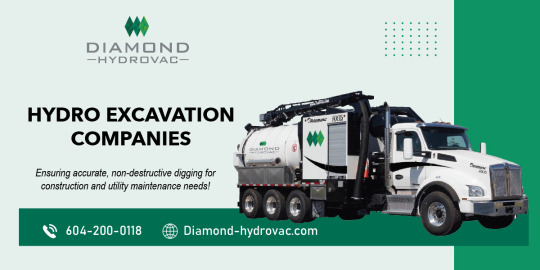
Advanced Digging Solutions for Construction Projects
Our hydro excavation companies offer advanced solutions for digging in sensitive or congested areas to traditional mechanical excavation methods. Contact us now!
#vac truck#hydro excavation companies#hydro excavation#hydro excavation services#hydro vac companies#hydro vac services#hydro vac truck service#hydrovac contractors#hydrovac truck services#hydrovac#vac truck service#vacuum truck daylighting excavation#hydro vac#hydrovac truck#utility excavation
0 notes